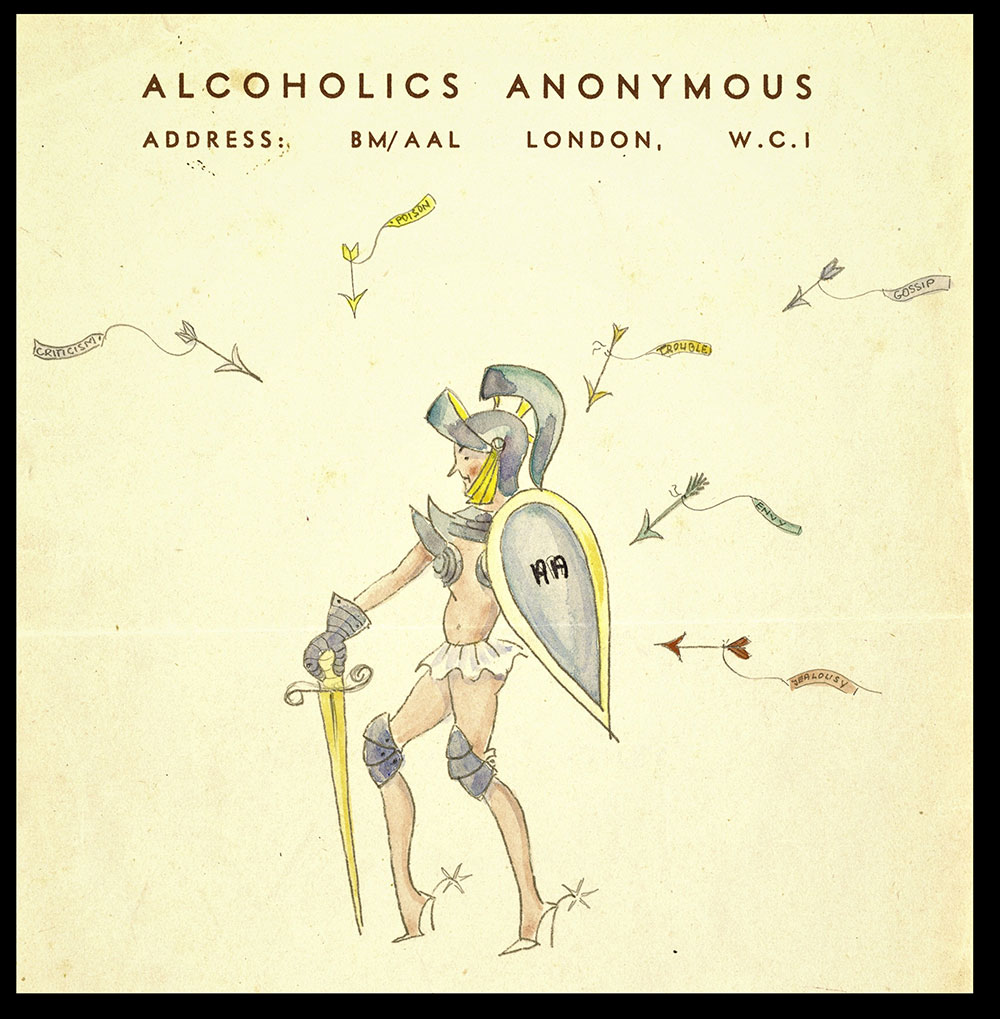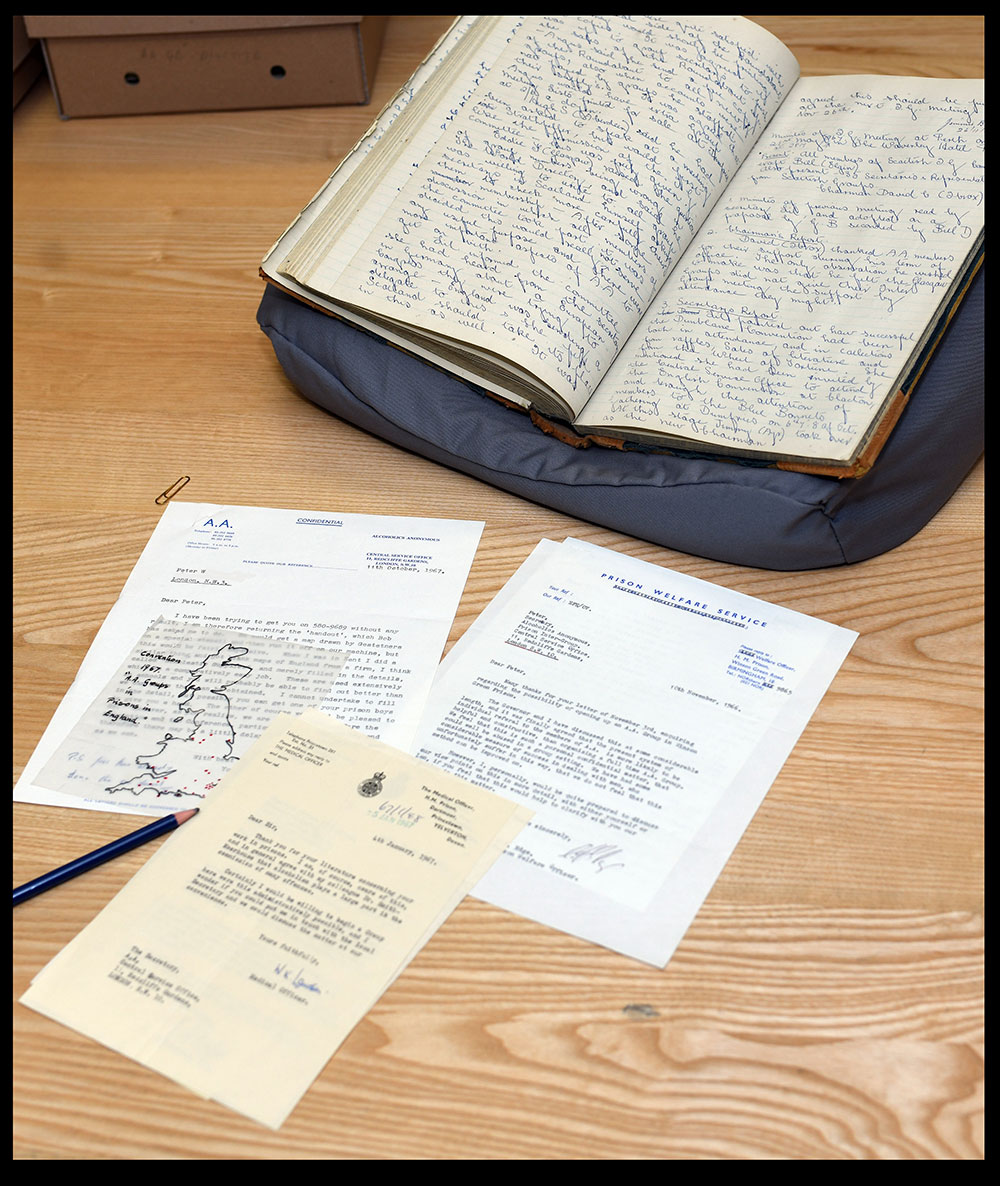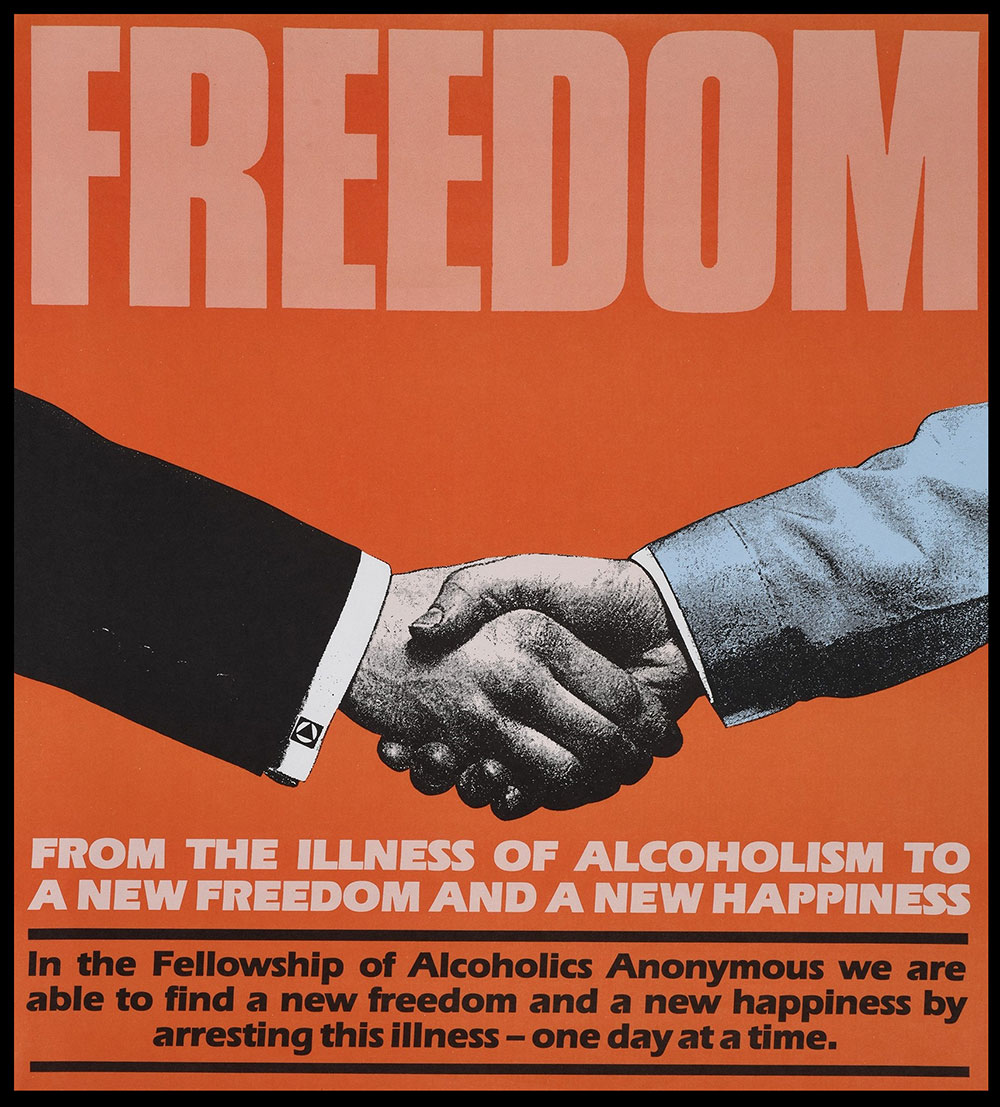Adaption and evolution
1975-1990
In 1975, AA GB in England and Wales underwent a significant restructure with the introduction of regionalisation. The Tenth General Service Conference that year agreed that regionalisation was desirable because of the benefits which accrue to the Fellowship as a whole in the fulfilment of its Primary Purpose. The consensus of opinion was that because of rapid growth there was a need for additional structure between intergroup and Conference. The 12th General Service Conference in 1977 saw for the first time representation at Conference by a Region - the Southern Region comprising five intergroups.
In 1976, the General Service Board conducted its first internal census of the British Fellowship, and it has been carried out at five yearly intervals since. The survey collected vital information about members, such as age, gender, employment status, occupation, and years of sobriety. Over the years the scope of information collected has expanded, and in 2002 a detailed project was undertaken to analyse how AA GB and its membership has developed over 25 years. The most recent survey was carried out in 2020.
The Fellowship had what was described as an exciting and progressive year in 1977. Meetings with the Confederation of British Industry as well as the Trade Union Congress led to the establishment of a working party to look into how employers dealt with alcoholism among their employees. The same year, the British Army of the Rhine contacted AA with a growing awareness of alcohol abuse within its ranks, and this was the first step in building a formal relationship between the British Fellowship and Armed Forces.

Results of the AA member survey conducted every seven years by the General Service Board. The survey records key details of the Fellowship, including age, employment, years of sobriety, etc. (1978)
Archive reference: AA/9/6/6
Following a recommendation made by the 1978 World Service Meeting, the General Service Office became the European Information Centre. The first European Service Meeting took place in Frankfurt in 1981, and meets bi-annually. That same year English-speaking groups in Europe expanded to cover 12 countries, and in 1980 the General Service Conference agreed that the English Speaking Intergroup of Central Europe would become full voting members within the British service structure.
In 1980, the Home Office made significant recognition of the impact and success of AA by making the proposal that long-serving prisoners who committed their offence under the influence of alcohol may be released early if they attended meetings. The publication of the Public Information workbook in that year became a valuable tool in helping AA spread awareness of the problems of alcoholism, and the Twelve Steps among the general public. The same year the Fellowship donated braille editions of the Big Book, and Twelve Steps and Twelve Traditions to the Royal Institute of the Blind.
In 1984, the General Service Conference approved the production of AA GB’s first information film ‘AA Works One Day at a Time’. The video was aimed at explaining how AA helps suffering alcoholics to newcomers. The success of the film led to AA GB commissioning several more videos focused on areas of service, namely Young People, Prisons and Archives.
In response to the Intergroup being short of finances, a member of the Chiltern and Thames Intergroup called Danny M proposed the concept of ‘Sobriety Week’ in March 1985. The purpose of Sobriety Week was that for a week, members would donate the equivalent of what they would have spent on alcohol before they found their sobriety through AA. The event was such a success that it was adopted by the Central London Intergroup, who wrote an article about it in AA News. Inspired by the article in AA News, many Intergroups hosted their own Sobriety Weeks in an unofficial capacity and across various dates. In 1988, the GSC recommended that sobriety week should become a national annual event to be held around 10th June, and it was to be renamed ‘Gratitude Week’.

Headlines from British national newspapers about the Alcoholics Anonymous Dispositions Act (1986)
Archive reference: AA/2/5/2/2/2
In many respects, 1986 was a landmark year for both AA GB and British charity law. The previous year the GSB had declined a substantial legacy bequeathed to the Fellowship in the will of an non-AA member. To accept this and other legacies would have been to contravene Tradition 7 that ‘every AA Group ought to be fully self-supporting, declining outside contributions’. In this instance however, the solicitor overseeing the will challenged AA’s right as a registered charity to refuse donations, and gave notice that they would pursue the matter through the courts. Losing the challenge could have potentially jeopardised AA GB’s charitable status, and led to the forfeiture of all the Fellowship’s assets.
Following a consultation with the Charity Commission, it was established that AA GB was in breach of the charitable laws of the day by refusing outside donations. The only solution was for AA GB to submit a Private Bill to Parliament which would change the law to allow the Fellowship to decline all, or part of, any legacies, gifts etc. The bill known as the Alcoholics Anonymous Dispositions Act was approved by Parliament on 25th July 1986, and permitted the Fellowship to disclaim any unwanted legacies, but accept up to £1,000 from a legacy bequeathed by a member and disclaim anything above that amount.

In 1986 the General Service Board relocated from London to York, and was located in Stonebow House in the city centre - Archive reference: AA/13/2/2/9
Internally, there were significant developments into how service disciplines were managed. The GSB created sub-committees for each service discipline, chaired by a trustee, and made up of members of the Fellowship proposed by an intergroup or region. Another significant event in 1986 was that the General Service Office relocated from London to York into Stonebow House. The following year, the first computer was installed at GSO.
In 1988, the first ‘Gay Group’ was registered with GSO and listed in the London section of the Where to Find Directory. In September that year, the first Lesbian and Gay Convention was held in capital, with the theme ‘The Courage to Change’.
Back to the timeline


